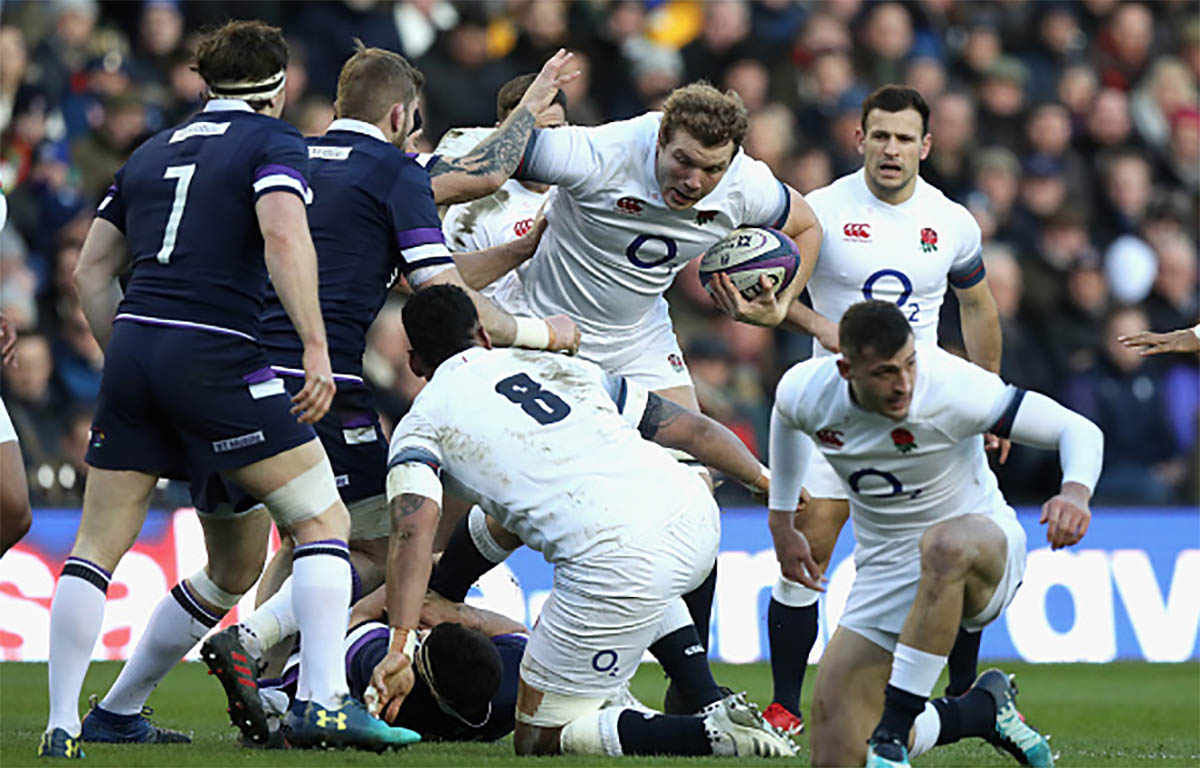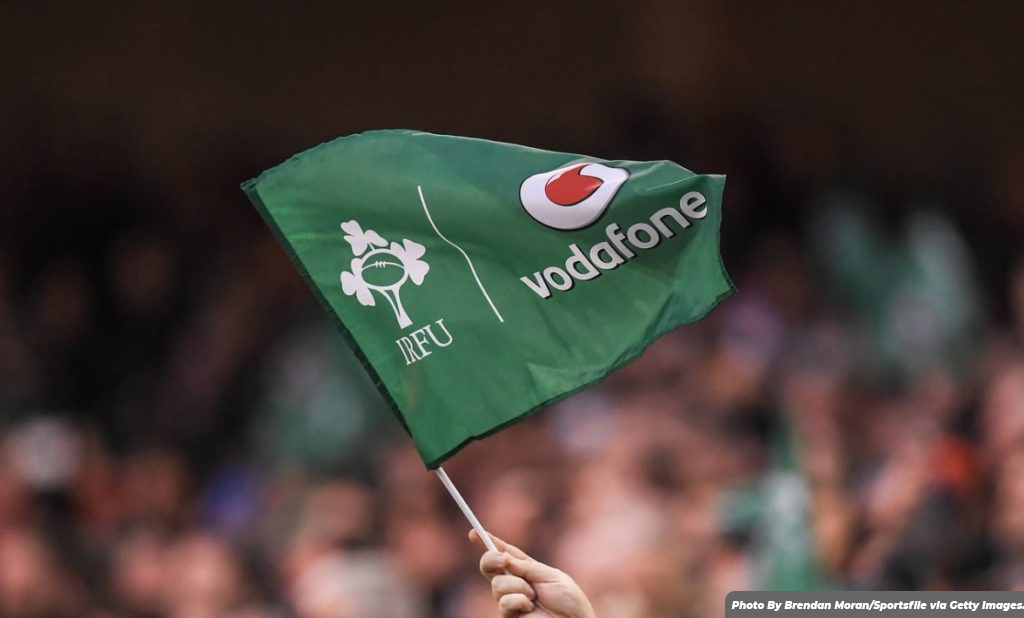6 Nations
England vs Scotland: The Talking points.
Team news, pre-match quotes, and the championship permutations ahead of Saturday’s finale at Twickenham

Both England and Scotland have made several changes to their starting line-ups ahead of the final round of the 2019 Six Nations on Saturday.
Scotland head coach Gregor Townsend has made six alterations to the team that narrowly lost to Wales last week.
Sam Skinner and Hamish Watson start at six and seven respectively, replacing Josh Strauss and the injured Jamie Ritchie.
Ben Toolis comes in for Jonny Gray at second-row, completing a new-look forward pack.
Sean Maitland will start at full-back, and Byron McGuigan will join him in the back-three, with Blair Kinghorn and Tommy Seymour ruled out through injury.
Sam Johnston gets the nod ahead of Pete Horne at centre.
Meanwhile, England boss Eddie Jones has made four changes – most notably replacing Joe Cokanasiga, who was man-of-match on his debut against Italy.
Jack Nowell will start on the wing instead of 21-year-old Cokanasiga, whom Jones says he is protecting from media ‘over-hyping’ after impressing on his first England start.
“The media has an effect on the player and we need to be conscious of that,” Jones told BBC Sport.
“I think it is important, particularly in England, because I have seen so many good young players that start with this boom and then only play three or four Tests. I want him to play 100 Tests for England.”
Mark Wilson also returns in place of Brad Shields at flanker, and Ben Moon is restored at prop, at the expense of Ellis Genge.
Jones has opted for playmaker Henry Slade at centre, with the heavyweight Ben Te’o dropping out the starting XV.
What they said
England winger Jonny May, who is the competitions leading try scorer, was keen to praise Cokanasiga following his promising first England cap.
Speaking to BBC Radio 5 Live, May said; “I haven’t played with a winger like him before – he’s got so much talent and so much potential.”
“He’s brilliant now and he’s only going to get better. I’m pleased that we’ve got him.”
Cokanasiga displayed his ability to carry the ball one-handed in the game against Italy, often allowing him to find an offload, but May admitted it isn’t something he could do.
“When I see him carrying it one-handed I think, I’m not going to try that, but I think too it shows confidence,” May said. “It shows he’s a 21-year-old guy out there who’s out there on the pitch expressing himself.”
Despite the ramifications of the Wales game on Saturday, May reiterated that England’s attentions will not be on the game in Cardiff.
“For me it’s not about winning the Six Nations,” he said. “There’s a bigger purpose to what we’re doing here, and that’s the World Cup.
“We can go away feeling good about ourselves in this campaign regardless of whether we win the championship or not. If we put down the performance we want against Scotland we can feel good about ourselves.
“The main thing is doing what’s right for you. We need to get our best performance out regardless of what happens in Cardiff.”
England head coach Eddie Jones was wary of the threat the Scottish side will pose, as he spoke ahead of the game that will also decide the Calcutta Cup.
“Scotland is a difficult side, they are always at you, they play with a lot of enthusiasm and effort and have got a lot of attacking strings to their bow,” the Australian said,
“Finn Russell is an exceptional player at 10 and they have got some pace on the outside so we are going to have to defend really well against them.”
England centre Manu Tuilagi recently rejected a move to Racing 92 in France, and revealed playing for his national side was a major factor in his decision.
English players playing overseas are not considered for the national team, due the RFU’s selection policy.
Tuilagi, who moves to inside centre against Scotland, told BBC Sport;
“Playing for England is massive.”
“It’s a feeling you can’t replace. Hopefully I will keep playing for England.”
“I couldn’t be happier with the decision that I’ve made. I’m over the moon and I’m happy it’s done and I can focus on Scotland at the weekend,” he added.
Scotland head coach Gregor Townsend has hit back at critics of side, and is confident he can orchestrate a shock result at Twickenham.
“If no-one thinks we’re going to win then that’s fine,” he said.
“We believe we can win and that’s what we’re working to do. Scotland teams tend to be underdogs on a number of occasions and it usually brings the best out in them.
Townsend also highlighted his teams performance last week against Wales as a cause for optimism.
“We’re very motivated and full of energy. There were a lot of positive aspects against Wales, a quality team. We know we have to improve again to win at Twickenham.”
“The character and fitness the players displayed showed, in the second half, what the team is capable of against one of the best sides in the world. The next step is making that pressure count on the scoreboard, more regularly.”
Championship Permutations – Who needs what?
What do Wales need?
- If Wales beat Ireland, Wales will secure the Grand Slam and the Championship.
- If Ireland beat Wales without a bonus point, and Wales get the losing bonus point, and England lose, Wales will win the title .
- If Wales lose without a bonus point, and England draw without a bonus point, Wales take the title
What do England need?
- If Wales lose to Ireland, and England beat Scotland, England will win the title.
- If England draw with a bonus point, and Wales lose to Ireland without a bonus point (and Ireland don’t outscore England by 64 point), England will win the title.
What do Ireland need?
- If Ireland win with a bonus point, and England lose, Ireland will retain the title.
- If England win with no bonus point, and Ireland score 64 points more than England, Ireland will retain the title.
- If Ireland win with no bonus point, Wales lose without bonus point, and England draw with a bonus point, Ireland will retain the title.
6 Nations
Munster Rugby Announce Contract Deals For Murray, Daly & Gleeson

Munster Rugby and the IRFU are pleased to confirm contract extensions for Conor Murray and Jack Daly with Brian Gleeson to be promoted from the Academy to the senior squad next season.
Murray and Daly have signed one-year extensions with Gleeson moving up to the senior squad on a two-year deal.
Gleeson is one of five Academy players moving up to the senior squad next year with Tony Butler, Ethan Coughlan, Mark Donnelly and Edwin Edogbo also signing two-year deals.
Conor Murray is one of the most decorated scrum-halfs in world rugby with 116 Ireland caps and three British & Irish Lions tours to his name.
A former St Munchin’s College student, the Garryowen man won his fifth 6 Nations title with Ireland last month and earned his second league title with Munster last season.
The 34-year-old has made 185 Munster appearances and scored 34 tries for the province to date and was named on World Rugby’s Team of the Decade in 2019.
25-year-old flanker Jack Daly came up through the ranks at Castleisland RFC and made his Munster debut against Zebre in 2020.
Daly joined the Academy in 2018, moved up to the senior squad in 2021 and plays his AIL rugby with Garryowen. A former Ireland U20 international, he made his Champions Cup debut against Toulouse in the quarter-final at the Aviva Stadium in 2022.

Try-scoring number 8 Brian Gleeson leads the charge for the Ireland Under-20s against France ©INPHO/Evan Treacy
20-year-old Gleeson moves up to the senior squad after just one year in the Academy that has seen him score one try in nine senior appearances.
Currently out of action with an ankle injury, he had already made three Champions Cup appearances before turning 20.
The powerful back-row forward was a Grand Slam winner with the Ireland U20s last year. plays his AIL rugby with Garryowen and came up through the ranks at Thurles RFC and Rockwell College.
Images & Content from Irish Rugby & Images © Inpho Photography
6 Nations
Farrell Names Ireland Match Day Squad To Face Scotland In Dublin

Head Coach Andy Farrell has named his Ireland Match Day Squad for Saturday’s Guinness Men’s Six Nations clash against Scotland at Aviva Stadium (Kick-off 4.45pm).
Ireland – currently sitting top of the Six Nations table heading into Super Saturday – can clinch back-to-back Championship titles with victory over Scotland in Dublin.
Farrell has named an unchanged starting XV for the Round 5 clash, as Hugo Keenan, Calvin Nash and James Lowe continue in the Ireland back three. Robbie Henshaw and Bundee Aki are once again selected in midfield, with Jack Crowley and Jamison Gibson-Park the starting half-backs.
Andrew Porter, Dan Sheehan and Tadhg Furlong pack down in the front row, with Joe McCarthy partnering Tadhg Beirne – who is set to win his 50th Test cap for Ireland – in the engine room.
Captain Peter O’Mahony is at blindside flanker, Josh van der Flier is at openside and Caelan Doris completes the starting XV at number eight.
The Ireland Coaching Team have opted for a 5-3 split on the bench, with Rónan Kelleher, Cian Healy, Finlay Bealham, Ryan Baird and Jack Conan providing the reinforcements up front, and Conor Murray, Harry Byrne and the fit-again Garry Ringrose the backline options.

Saturday’s match is live on Virgin Media One and ITV, with live radio coverage available on RTE Radio 1.
Ireland Team & Replacements (v Scotland, Guinness Men’s Six Nations, Saturday, March 16, 4.45pm)
15. Hugo Keenan (UCD/Leinster)(39)
14. Calvin Nash (Young Munster/Munster)(5)
13. Robbie Henshaw (Buccaneers/Leinster)(71)
12. Bundee Aki (Galwegians/Connacht)(55)
11. James Lowe (Leinster)(30)
10. Jack Crowley (Cork Constitution/Munster)(13)
9. Jamison Gibson-Park (Leinster)(34)
1. Andrew Porter (UCD/Leinster)(63)
2. Dan Sheehan (Lansdowne/Leinster)(25)
3. Tadhg Furlong (Clontarf/Leinster)(75)
4. Joe McCarthy (Dublin University/Leinster)(9)
5. Tadhg Beirne (Lansdowne/Munster)(49)
6. Peter O’Mahony (Cork Constitution/Munster)(captain)(104)
7. Josh van der Flier (UCD/Leinster)(61)
8. Caelan Doris (St Mary’s College/Leinster)(40)
Replacements:
16. Rónan Kelleher (Lansdowne/Leinster)(30)
17. Cian Healy (Clontarf/Leinster)(128)
18. Finlay Bealham (Buccaneers/Connacht)(39)
19. Ryan Baird (Dublin University/Leinster)(19)
20. Jack Conan (Old Belvedere/Leinster)(45)
21. Conor Murray (Garryowen/Munster)(115)
22. Harry Byrne (UCD/Leinster)(3)
23. Garry Ringrose (UCD/Leinster)(57).
Images & Content from Irish Rugby & Images © Inpho Photography
6 Nations
Farrell Names Ireland Team To Face England At Twickenham

Head Coach Andy Farrell has named his Ireland Match Day Squad for Saturday’s Guinness Men’s Six Nations clash against England at Twickenham (Kick-off 4.45pm).
Peter O’Mahony captains Ireland for the Round 4 visit to London, with Hugo Keenan returning to the starting XV after recovering from injury.
Keenan joins Calvin Nash and James Lowe in the Ireland back three, with Bundee Aki and Robbie Henshaw continuing their midfield partnership.
Jack Crowley and Jamison Gibson-Park are retained as the half-back pairing.
In the pack, Andrew Porter, Dan Sheehan and Tadhg Furlong are in the front row, with Joe McCarthy and Tadhg Beirne named in the engine room. Captain O’Mahony is at blindside flanker, Josh van der Flier is at openside and Caelan Doris completes the starting XV at number eight.
The Ireland Coaching Team have selected a 6-2 split on the bench, as Ronan Kelleher, Cian Healy, Finlay Bealham, Iain Henderson, Ryan Baird and Jack Conan provide the reinforcements in the pack.
Backs Conor Murray and Ciaran Frawley complete Ireland’s Match Day 23 to face England.
Saturday’s match is live on RTÉ2 and ITV.
Ireland:
15. Hugo Keenan (UCD/Leinster)(38)
14. Calvin Nash (Young Munster/Munster)(4)
13. Robbie Henshaw (Buccaneers/Leinster)(70)
12. Bundee Aki (Galwegians/Connacht)(54)
11. James Lowe (Leinster)(29)
10. Jack Crowley (Cork Constitution/Munster)(12)
9. Jamison Gibson-Park (Leinster)(33)
1. Andrew Porter (UCD/Leinster)(62)
2. Dan Sheehan (Lansdowne/Leinster)(24)
3. Tadhg Furlong (Clontarf/Leinster)(74)
4. Joe McCarthy (Dublin University/Leinster)(8)
5. Tadhg Beirne (Lansdowne/Munster)(48)
6. Peter O’Mahony (Cork Constitution/Munster)(captain)(103)
7. Josh van der Flier (UCD/Leinster)(60)
8. Caelan Doris (St Mary’s College/Leinster)(39)
Replacements:
16. Ronan Kelleher (Lansdowne/Leinster)(29)
17. Cian Healy (Clontarf/Leinster)(127)
18. Finlay Bealham (Buccaneers/Connacht)(38)
19. Iain Henderson (Academy/Ulster)(80)
20. Ryan Baird (Dublin University/Leinster)(18)
21. Jack Conan (Old Belvedere/Leinster)(44)
22. Conor Murray (Garryowen/Munster)(114)
23. Ciaran Frawley (UCD/Leinster)(3)
Images & Content from Irish Rugby & Images © Inpho Photography













